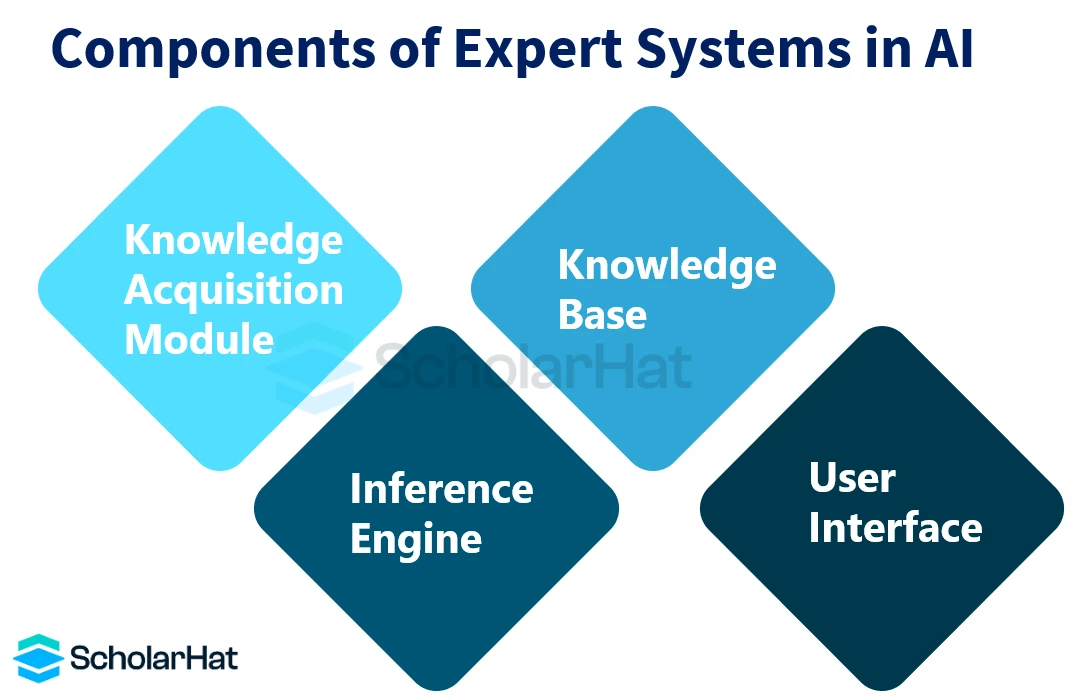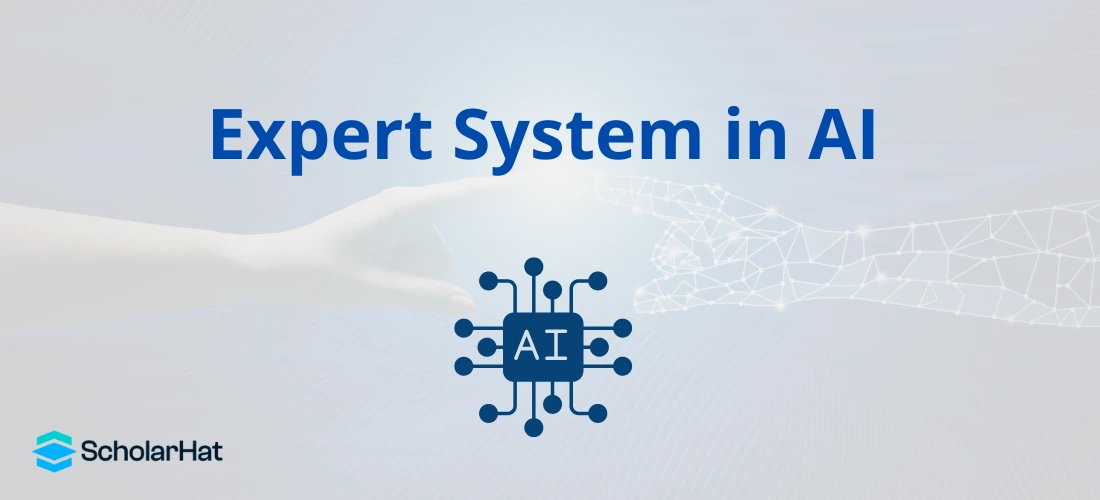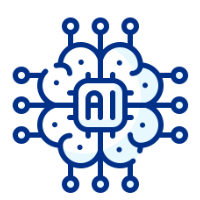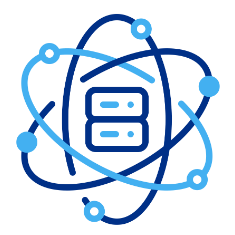18
AprExpert System in AI
Introduction
The concept of expert systems in AI is one of the main factors behind how artificial intelligence (AI) has revolutionized industries throughout the world. These intelligent systems are intended to imitate human decision-making in particular fields. In this article, Artificial Intelligence for beginners, we will go deep into the area of expert systems in AI, examining their traits, elements, uses, and advantages.
What is an Expert System in AI
Expert systems, sometimes referred to as knowledge-based systems in artificial intelligence seek to capture and use the knowledge of human professionals. Expert system in AI is based on a knowledge base, which is a sizable database of guidelines and information on a certain field. Expert systems can make wise judgments and offer insightful information instantly by utilizing this knowledge base.
Understanding the Concept of Expert System in AI
- To replicate the problem-solving abilities of human experts, an expert system is developed.
- It makes use of machine learning algorithms, rule-based reasoning, and pattern recognition techniques.
- Experts in the relevant fields build the knowledge base, which is a crucial part of an expert system.
- By defining laws and facts, experts encode their expertise into the system.
- This knowledge base is used by the system to offer suggestions and solutions.
- A variety of AI approaches are combined with expert systems to simulate human expertise.
Characteristics of Expert Systems
The following are characteristics of expert system:
- Reasoning & Explanation: They give clear and comprehensible justifications for their choices.
- Learning & Improvement: They consistently learn and develop by adding fresh information and experiences to their knowledge base.
- Knowledge Base: They rely on a specialized knowledge base that was produced by human professionals.
- Consistency and Reliability: They aim for accurate and impartial decision-making.
- Domain-Specific Expertise: They are well-versed in particular fields.
- Problem-Solving: By analyzing data and coming up with answers, they are excellent problem solvers.
- Decision Support: By offering knowledgeable opinions, they help users make wise judgments.
- User Interaction: They communicate with users using a simple interface, asking questions and gathering data.
- Accessibility: They enable a larger audience to have access to knowledge at the expert level.
- Limitations: They are subject to the accuracy of the knowledge base and may have difficulty in some scenarios requiring thinking.
Expert system examples in Various Industries
Here are a few expert system examples in different fields:
- Healthcare: Identifying illnesses and advising on appropriate courses of action.
- Finance: Fraud investigation, risk evaluation, and portfolio management.
- Manufacturing: Predictive maintenance, quality control, and process optimization.
- Engineering and aerospace: Creating and troubleshooting intricate systems.
- Support for customers: Personalised assistance and problem-solving.
- Transportation and Logistics: Enhancing supply chain management and route planning in transportation and logistics.
- Environmental management: It includes evaluating the effects on the environment and suggesting sustainable practices.
- Education: Encouraging individualized instruction and educational advice.
- Legal and Compliance: Contract analysis, legal research, and compliance oversight.
- Human resources: screening resumes, matching candidates, and performance reviews.
Benefits of expert system in AI
The benefits are as follows:
- Update the knowledge base frequently with the newest developments and user comments.
- For accurate and dependable findings, put in place solid validation and verification procedures.
- For effective adoption and use, give users the necessary training and assistance.
- Keep your records organized for transparency and comprehension.
- Encourage cooperation between domain experts, AI experts, and end users.
- Create an intuitive user interface for simple communication and explanation.
- Build with flexibility and scalability in mind to accommodate shifting needs.
- Keep an eye on performance and make improvements as needed.
- Address ethical issues in AI to guarantee data justice and privacy.
- Keep asking for input to improve capabilities and user pleasure.
Components of Expert Systems in AI

The following are the components of expert system in AI:
- Knowledge Acquisition Module: Captures and converts expert knowledge from human specialists for the knowledge base.
- Knowledge Base: Acts as the brain of the expert system by storing facts, rules, and knowledge that has been obtained.
- Inference Engine: The knowledge base's rules and logic are applied to the incoming data by the inference engine, which then produces the intended output.
- User Interface: Enables easy communication between users and the expert system, as well as user-friendly output.
Expert systems with applications in Real-World Scenarios
The following are some examples of expert systems with applications:
- Healthcare: Medical diagnosis, medication discovery, and recommendations for individualized treatment all employ expert systems.
- Finance: Credit scoring, fraud detection, & investment portfolio management all make use of expert systems.
- Manufacturing: Process optimization, quality assurance, and preventive maintenance are all handled by expert systems.
- Client support: Expert systems help to provide individualized assistance and address client concerns.
- Logistics and the supply chain: Expert systems improve supply chain coordination, inventory control, and route planning.
- Environmental Management: Expert systems help with pollution prevention, environmental effect analysis, and sustainable practices.
- Education: Expert systems support suggestions for educational programs, adaptive tutoring, and personalized learning.
- Engineering and aerospace: Expert systems help with sophisticated system design and troubleshooting, including structural analysis and aircraft maintenance.
- Decision Support: Expert systems are used as decision support tools in many different fields, offering analyses and suggestions.
Best Practices of Expert Systems in AI
The best practices for AI expert systems are listed below:
- Update the knowledge base frequently with the newest developments and user comments.
- For accurate and dependable findings, put in place solid validation and verification procedures.
- For effective adoption and use, give users the necessary training and assistance.
- Keep your records organized for transparency and comprehension.
- Encourage cooperation between domain experts, AI experts, and end users.
- Create an intuitive user interface for simple communication and explanation.
- Build with flexibility and scalability in mind to accommodate shifting needs.
- Keep an eye on performance and make improvements as needed.
- Address ethical issues to guarantee data justice and privacy.
- Keep asking for input to improve capabilities and user pleasure.
Resources for further learning and practice
Online tutorials and courses: Explore Additional Learning and Practice Resources with us at https://www.scholarhat.com/training/artificial-intelligence-certification-training. There are numerous online tutorials and courses available that specifically focus on Artificial Intelligence.
Summary
In the field of AI, expert systems have become a potent tool that is revolutionizing the way businesses make decisions and carry out difficult tasks. Also, our exploration has encompassed a comprehensive understanding of characteristics of expert system, components of expert system, expert system examples, benefits of expert system & expert systems with applications. Expert systems let organizations make decisions that are consistent, precise, and efficient by capturing and utilizing the knowledge of human professionals. Expert systems have a wide range of uses in several sectors of the economy, including healthcare, banking, logistics, and manufacturing. The potential of expert system in AI will only increase as technology develops, providing new opportunities for businesses to spur innovation and accomplish their objectives. Staying ahead of the AI revolution requires embracing the capabilities of expert systems.







